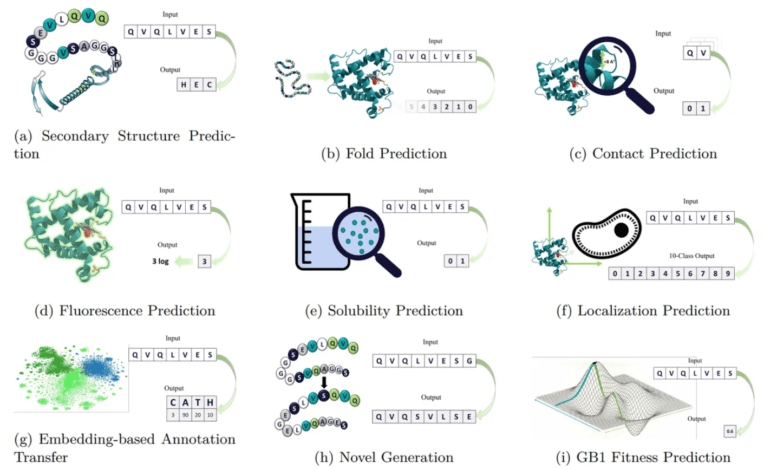TL;DR:
- Ankh, a groundbreaking protein language model, emerges as a means for AI to communicate with proteins.
- Developed through a collaboration between experts from renowned universities and Protinea, Ankh unlocks the language of proteins by analyzing vast datasets.
- Ankh resembles ChatGPT in its functioning, using its knowledge to generate new protein sequences and predict their behavior.
- Understanding proteins and their language is crucial for human biology, as they play a pivotal role in the body’s structure and function.
- Ankh’s potential applications span various fields, including medicine, environmental science, and synthetic biology.
- In medicine, Ankh can accelerate drug discovery by predicting protein-compound interactions and aiding genetic research.
- Ankh’s contributions to synthetic biology offer prospects for renewable energy and materials science, addressing environmental challenges.
Main AI News:
Artificial Intelligence (AI) has taken a monumental leap forward in the realm of protein analysis. Imagine a world where AI converses with proteins, those intricate molecules that perform vital functions within the human body. Brace yourselves, for Ankh, a pioneering protein language model, aims to achieve just that.
Born out of a collaboration between distinguished experts from the Universities of Munich and Columbia, in partnership with biotech powerhouse Protinea, Ankh derives its name from an ancient Egyptian symbol representing life. It’s a fitting moniker for an AI language model that delves deep into the very essence of life’s building blocks.
Ankh’s transformative abilities stem from its profound comprehension of the “language of proteins,” acquired through extensive analysis of an expansive dataset of protein sequences. Leveraging this knowledge, Ankh not only generates new protein sequences but also endeavors to decipher their potential functionality.
In essence, a protein language model such as Ankh, much like its linguistic counterpart ChatGPT, operates on a comparable framework. While words form the foundation of human language, proteins rely on amino acids as their elemental constituents. These amino acids intertwine, akin to assembling words, and their precise sequence order determines the protein’s three-dimensional structure—a prerequisite for its biological efficacy. Just as humans adhere to linguistic rules to facilitate effective communication, Ankh employs its vast understanding of proteins and their structural regulations to predict the most plausible biological configurations for specific outputs.
Comprehending the language of proteins bears paramount importance in the realm of human biology. Proteins assume critical roles in the architecture, functionality, and governance of bodily tissues and organs. As such, Ankh’s prowess in analyzing and predicting protein behavior heralds immense promise across diverse fields, including medicine, environmental science, and beyond.
For instance, Ankh can prove invaluable in the domain of drug discovery by predicting protein interactions with various compounds. This predictive ability expedites the development of novel medications, significantly reducing the time required. Furthermore, Ankh empowers scientists to unravel the intricate relationship between protein mutations and diseases—an invaluable asset in genetic research.
However, Ankh’s potential extends far beyond the boundaries of medicine. Its applications extend into the realm of synthetic biology, where it aids in the design of innovative proteins showcasing desired functionalities. Such advancements hold profound implications for sectors like renewable energy and materials science. By engineering proteins capable of efficiently breaking down plastics or generating biofuels, Ankh contributes substantially to overcoming some of the most pressing environmental challenges of our era.
Conclusion:
The emergence of Ankh, an AI protein language model, represents a significant breakthrough in the market. Its ability to decipher the language of proteins and predict their behavior opens doors to transformative advancements in medicine, environmental science, and synthetic biology. Ankh’s potential impact on drug discovery, genetic research, renewable energy, and materials science positions it as a game-changer, paving the way for innovative solutions to pressing challenges. Businesses operating in these fields should closely monitor and leverage the capabilities of Ankh to gain a competitive edge in their respective markets.

